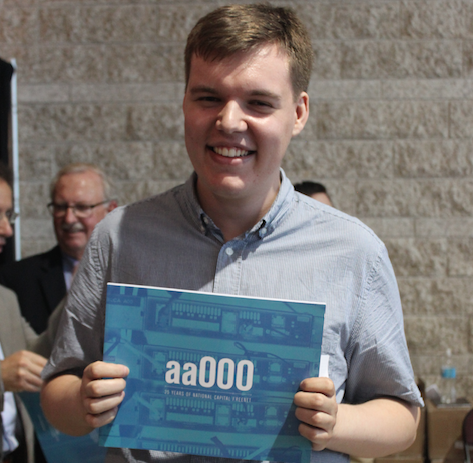FreeNet celebrates 25 years of grassroots Internet
By Liam Leonard
The people at FreeNet know that a lot has happened in the past 25 years; that’s why they are hosting a free-to-attend party on Sept. 28 to launch the book aa000: 25 Years of National Capital FreeNet.
Alex Parsons, a recent Carleton University journalism graduate and the editor of aa000, said he is aware many Ottawa residents may not know what FreeNet is; when he was hired in June to put the 110-page book together, he had never heard of the organization. Now, Parsons is able to explain that FreeNet is a grassroots Internet service provider operating for all people of Ottawa and Gatineau.
“Operating for the people,” he said, means keeping prices low and interaction with the community high.
The book, Parsons noted, will act as both a retrospective of FreeNet’s quarter-century-old story and as a reminder of its continued presence in 2017.
National Capital FreeNet was launched in 1992, with Carleton University’s Dave Sutherland as chairman.
The goal has always been to give the people of Ottawa affordable, high quality access to the Internet while making sure they understand how to use it and feel safe doing so, said Shelley Robinson, the organization’s executive director.
With this in mind, FreeNet quickly amassed thousands of members who were eager to involve themselves in the digital world while communicating directly with those offering them Internet access.
This could include walking into the FreeNet office directly to ask for help with Internet access, or even volunteering at the organization’s HelpDesk, Parsons said.
While editing the book, Parsons discovered that by 1995, the organization was using only 150 phone lines to serve 40,000 people.
“It was daunting,” Parsons said about the editing process, “but hopefully the book can help people appreciate how far we’ve come.”
In the late 1990s, broadband providers like Rogers and Bell began to attract people to their services. What had previously been a crisis of too many FreeNet members had by then turned into a crisis of too few members, Robinson said.
The key to FreeNet’s success, though, has been its relationship with the local community, said Parsons.
“The big guys like Rogers and Bell are kind of like Wal-Mart, but we’re like your farmer’s market,” he said. “We use our revenue to improve our services and provide workshops for our members. That’s another difference: we don’t treat our customers as customers — we treat them as members.”
Recently, a member came into the FreeNet office on Richmond Road with a broken computer and was given an old, working laptop for free, Parsons said.
FreeNet’s focus on community is why the organization still has 5,000 members today, said Robinson.
“If you don’t have digital citizenship, that means you’re shut off from the world’s conversations,” she said. “We don’t want people to be shut off. We want people to be able to use the Internet to amplify their voice.”
The Sept. 28 event at City Hall is including what Parsons calls a “living history exhibit” including people from FreeNet’s past and present.
“The world was so different 25 years ago, and we’re still around,” Robinson said. “We’re definitely going in the direction of doing more of what we’re doing now.”

